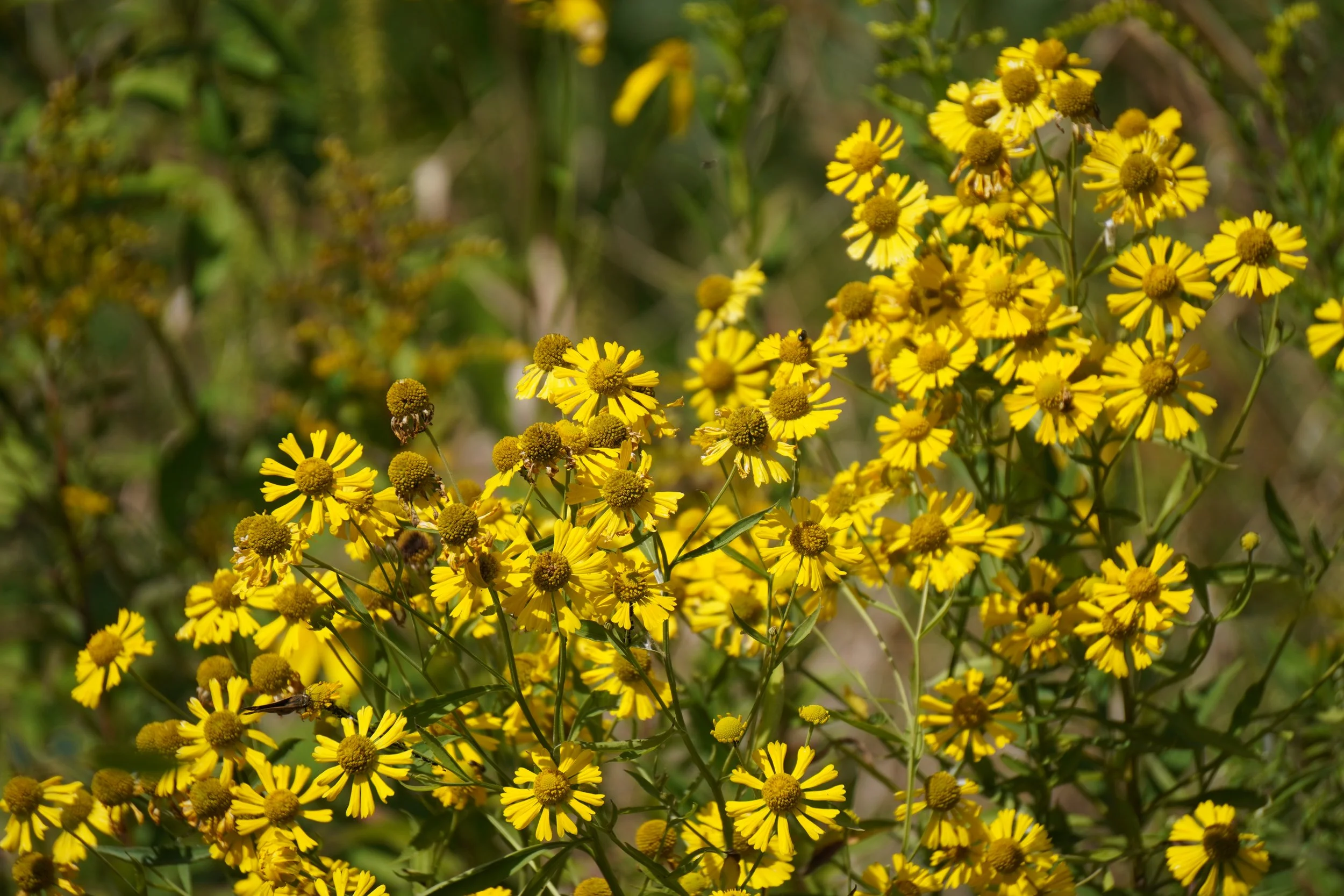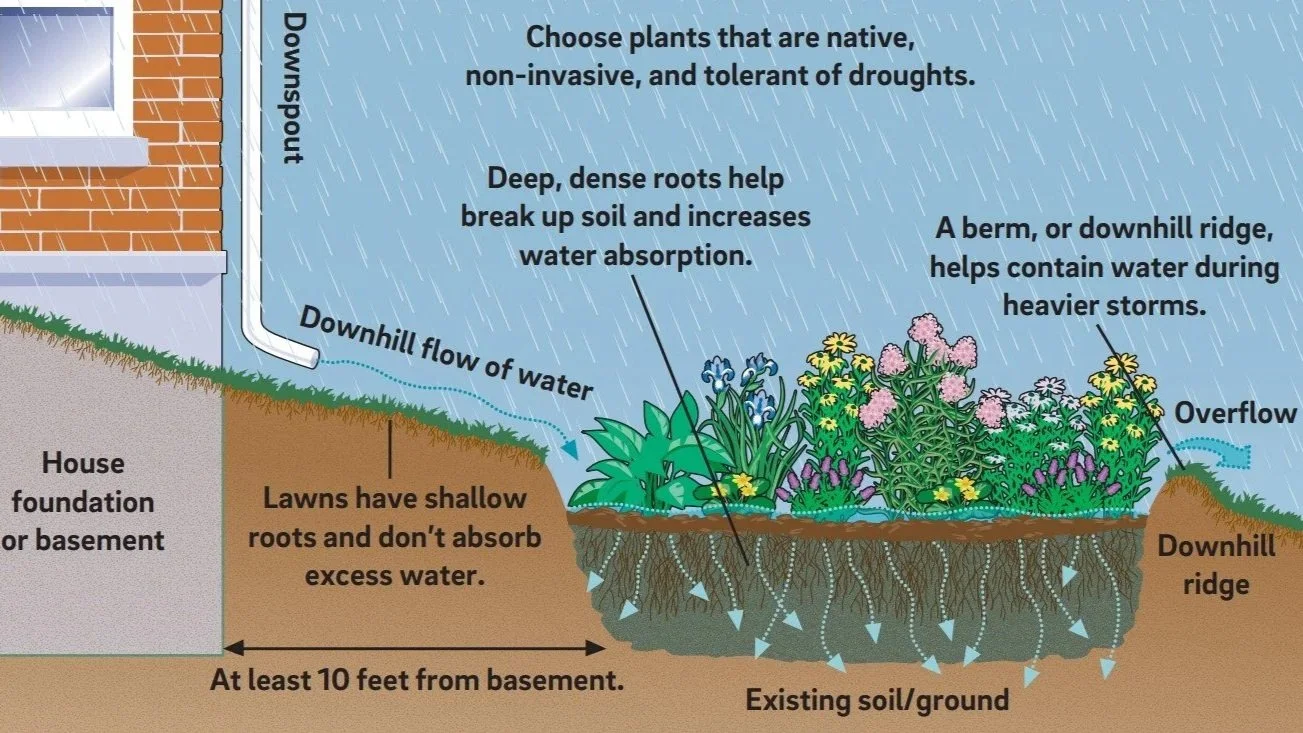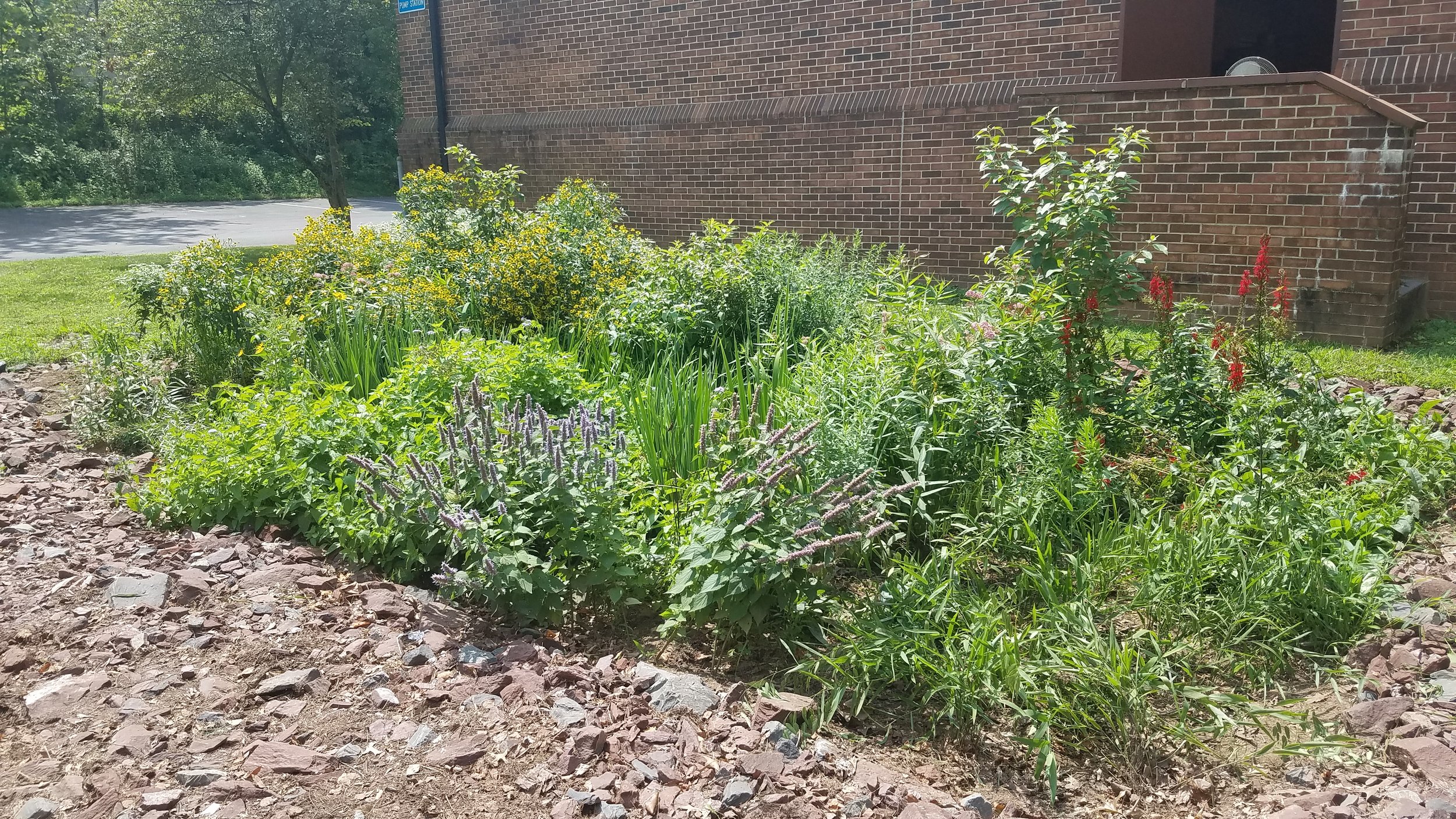
Rain Gardens
Manage stormwater and increase habitat on your property!
A rain garden is a bowl shaped garden designed to collect water during a storm, providing time for infiltration into the ground and absorption by native plants - two natural ways of filtering out pollutants!
What is a Rain Garden?
Rain Garden Benefits
Reduces stormwater runoff and flooding
Filters pollutants
Recharges groundwater resources
Low-maintenance landscaping
Attracts birds, butterflies, and other wildlife
Increases beneficial insects
Decreases mosquitoes
Aesthetically pleasing
Increases habitat area
Building a Backyard Rain Garden
Choose and area in your yard that gets water from your downspout or driveway runoff. Make sure your garden is at least 10 feet away from your home and be sure it is on a gentle slope. Call PA One Call before you dig!
Do a percolation test to see how quickly water will be absorbed. Dig a 6” - 12” hole at the center of your garden and fill it with water. If there is still water in the hole after 24 hours you will need to add soil amendments to help with infiltration.
Dig a 4” - 8” flat bottomed bowl in a shape and size of your choice. Aim for a garden that is about 20% the size of the roof, patio or pavement area draining into it.
Loosen bottom soil up to 12” and mix in amendments - compost and sand mixed with topsoil.
Select native plants based on light and moisture. Choose water loving plants for the deepest part of the garden. Be sure to select plant species that are native to your area! Check out our Native Plant List or Native Plant Photo Album for inspiration!
Use natural (dye-free) mulch to avoid weed growth.
Water plants as needed in the first growing season. Once established, your garden will not need watering, but make sure to monitor it and remove any weeds.
Rain Garden Resources
Use these resources to help you get started with your rain garden project!
Perkiomen Watershed Conservancy - The Conservancy team installs several rain gardens each year to help local municipalities combat stormwater. Have questions about installing a rain garden on your property? Reach out to our Conservation Team for advice or join us for an upcoming Native Plant Project or Plant-A-Thon volunteer opportunity.
Penn State Extension - Extension Rain Garden Resources
Pennsylvania Environmental Council - Creating Your Rain Garden
Environmental Protection Agency - Soak Up the Rain: Rain Gardens
Alliance for the Chesapeake Bay - Rain Gardens





